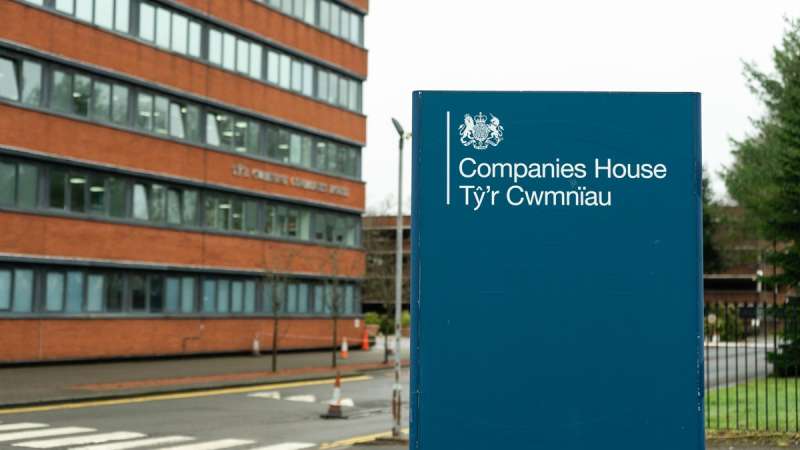Limited Liability Partnerships
A Limited Liability Partnership (LLP) is a separate legal entity governed by the Limited Liability Partnerships Act 2000 and confers full limited liability on its members.
Myerson Solicitors' corporate lawyers advise limited liability partnerships and limited liability partnership members on all aspects of an LLP's life cycle.
The limited liability partnership life cycle includes the following:
- starting the LLP and drafting the LLP agreement
- the introduction and retirement of members
- sale and purchases of limited liability partnerships
- mergers and dissolutions
Our corporate solicitors also advise on the incorporation process of partnerships into LLPs, converting LLPs into limited companies, and other conversion projects.
Limited liability partnerships are often useful vehicles in the professional services sector (including for law, accountancy firms, IFAs and other businesses) and property businesses.
Limited liability partnerships offer a combination of features from both companies limited by shares, which provide limited liability for their members, and traditional partnerships.
The hybrid model provides certain tax advantages, as well as aspects of privacy and flexibility often associated with a traditional partnership.
How Our LLP Lawyers Can Help
Our corporate solicitors can advise on the elements of the legal business structure for setting up and establishing a limited liability partnership.
Our award-winning corporate team regularly advise on the structure of equity for limited liability partnerships, including whether LLP members should be:
- salaried members - with an annual salary and no right to share in the profits
- fixed share members - with a guaranteed minimum drawing of the profits of the LLP
- full equity members - with a capital investment and a share in the balance of the profits after payment of salaries and fixed shares
Whilst not compulsory, it is highly recommended that each limited liability partnership has a membership agreement.
A membership agreement is a private agreement which does not need to be filed at Companies House.
Our corporate lawyers regularly draft and negotiate limited liability partnership agreements and can assess the following:
- How members make capital contributions and how profits are distributed among them, including the allocation of profits among different classes of members.
- How the liability of the LLP members will be governed (including any indemnity from the LLP to each member for his or her personal liabilities arising in the ordinary course of business).
- The rules concerning decision-making, including voting rights, management boards and committees, and reserved matters.
- What happens in the event of the death of a member, retirement provisions, expulsion and pre-emption rights, including the financial entitlements of outgoing partners and restrictive covenants.
Limited Liability Partnership FAQs
What are the benefits of a limited liability partnership?
A limited liability partnership structure (LLP) offers several benefits:
- Limited Personal Liability: LLP partners are not personally liable for the debts and liabilities of the limited liability partnership. Business partners' personal assets are protected, and their liability is limited to the amount they've invested in the partnership.
- Flexibility: Limited liability partnerships offer flexibility in management and ownership structures, allowing partners to define their roles and responsibilities in the partnership agreement.
- Pass-Through Taxation: Limited liability partnerships enjoy pass-through taxation, meaning profits and losses are passed through to individual partners' tax returns, avoiding double taxation at the entity level.
- Easy Transfer of Ownership: Limited liability partnerships permit easy transfer of ownership and the addition of other partners, making it adaptable to changing business structures.
- Legal Entity Status: Limited liability partnerships have separate legal entity status, which provides credibility and the ability to enter contracts, own assets, and sue or be sued in the partnership's name.
- Limited Formalities: Limited liability partnerships often have fewer regulatory and reporting obligations in comparison to private limited companies, which reduces admin procedures.
Overall, LLPs combine liability protection with operational flexibility, making them a popular choice for businesses and professional practices.
What is the difference between a limited liability partnership and a limited company?
A limited liability partnership (LLP) provides limited personal liability to its partners, who actively manage the business.
In contrast, a limited company offers limited liability to its shareholders and can have a separate management structure.
How are limited liability partnerships taxed?
Profits and losses are allocated to individual partners, who report and pay income tax on their share of income, through self-assessment tax returns.
The LLP structure avoids double taxation at both the entity and individual levels, as opposed to companies that have to pay corporation tax.
How do partners in a limited liability partnership get paid?
Partners in a limited liability partnership (LLP) typically get paid through profit distributions.
The distributions are based on the partnership agreement and the profit-sharing arrangement.
Partners may also receive salaries or guaranteed payments if specified in the partnership agreement.
The specifics of payment methods and amounts can vary widely depending on the LLP's internal structure and agreements among the partners.
Can you take dividends from a limited liability partnership?
Partners in a limited liability partnership cannot take dividends.
Dividends are typically associated with companies, where shareholders receive a portion of the company's profits.
In an LLP, profits are distributed to partners through profit distributions based on the partnership agreement and the partners' ownership shares.
Who are designated members in a limited liability partnership?
Designated members in an LLP are individuals who hold certain responsibilities and obligations as outlined by the LLP's governing documents.
The responsibilities may include administrative duties such as filing annual accounts, maintaining company records, and ensuring compliance with legal requirements.
Designated members are often recognised as the primary points of contact for regulatory authorities and may have additional duties assigned by the LLP agreement.
Our Limited Liability Partnership Experience
Our corporate solicitors have significant experience in acting for limited liability partnerships and members, including:
- Acting for a law firm on its incorporation from a partnership at law to a limited liability partnership, including drafting the business and asset transfer agreement and the members agreement, as well as advising on certain regulatory elements.
- Preparing LLP members' agreements for many different types of businesses, including fixed share members' agreements in the context of a law firm and an equity members' agreement for a property joint venture business, amongst others.
- Drafting and negotiating a retirement deed for the retirement of an LLP member in a property business, including the purchase and sale of a share of the goodwill of the limited liability partnership.
- Acting on the incorporation of two separate property LLPs into one limited company, involving the transfer of legal title (and beneficial interests) in a significant property portfolio.
Limited Liability Partnerships Case Study
Incorporation of Law Firm into a Limited Liability Partnership
Myerson acted for a law firm on its incorporation from a partnership into a limited liability partnership.
The Myerson team worked closely with the law firm project team, as well as the firm's tax advisers, to help implement the structure, prepare the documentation, and complete the project.
The Myerson team prepared the incorporation deed and provided advice on the transfer of certain assets from the partnership to the LLP, such as:
- The transfer of client retainers (and whether client consent was required), including conditional fee agreements (CFAs), damages-based agreements (DBAs) and other types of retainers.
- Transferring client monies in line with the guidance issued by the Solicitors Regulation Authority (SRA).
- Documenting the process for dealing with disbursements and work-in-progress (WIP).
- Advising on the assumption of liabilities, including the transfer of the partnership's loan arrangements, bank accounts and overdraft facility.
The Myerson team also prepared the LLP membership agreement, which entailed reviewing the existing partnership agreement and retaining (whilst tailoring and updating) the core principles so that they continued to operate in the context of the LLP.
This included, amongst other things, drafting to capture the rules of the firm on:
- Entitlement to profits (and risk for losses), including current account drawings.
- Capital contributions and capital account maintenance.
- Members' duties, responsibilities, entitlement to holidays, flexible working, and other benefits.
- Which members would act as designated members of the LLP.
- Management and decision-making, including voting, the powers of the management board and the maintenance of the Chief Executive Officer position.
- Expulsion and retirement provisions.
Additionally, Myerson assisted on a number of other matters ancillary to the project, including:
- Advising on other specific arrangements of the firm, including after-the-event (ATE) insurance policies and case funding agreements.
- Advising on the data protection issues in connection with the transfer of client personal data, marketing databases and direct marketing data.
- Advising on the transfer of the employees of the partnership to the LLP under TUPE.
- Advising on matters pertaining to changes of control (including checking contracts for consent requirements).
- The incorporation of a trust corporation, which the firm utilises for the provision of in-house trustee services (as trustee, executor, administrator, attorney and/or deputy), including advising on the SRA guidance and its constitution.
Why Work With Our Corporate Lawyers?
- We have been ranked as a Top Tier law firm by the Legal 500 for the last seven years.
- You will receive city-quality corporate law advice at regional prices.
- Price transparency - we provide our clients with an estimate at the outset of any piece of work with ongoing updates throughout the matter.
- Our 5 Corporate Partner led service ensures you receive the very best legal advice and commercially minded support.
- We have a large team with experience across a diverse variety of sectors, focused on achieving your objectives and hitting your deadlines.
- We are a full-service law firm operating from a one-site office, which means our teams communicate effectively and efficiently and our Corporate Lawyers can draw on support from other specialist lawyers such as property and employment lawyers.
- Our Corporate Solicitors use the latest technology to ensure that we are working as efficiently as possible and that geographical distance is no bar to us from providing you excellent client service.
- We were the winners of ‘Corporate Team of the Year 2021’ at the Manchester Legal Awards.
- Take a look at the Myerson Promise for further benefits of working with us here.
Testimonials
Meet Our Specialists
Home-grown or recruited from national, regional or City firms. Our specialists are experts in their fields and respected by their peers.
Contact Our Experts
You can contact our lawyers below if you have any more questions or want more information:




















